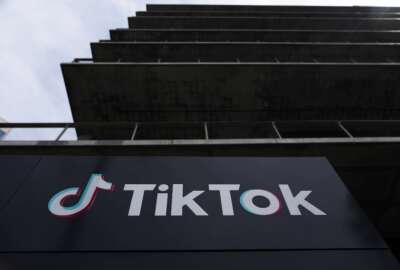
Should feds even have TikTok on their personal devices?
Banned on federal devices, is TikTok even safe to use on personal devices of federal employees?
TikTok CEO Shou Zi Chew spent a whole day trying to answer all the questions, or more precisely, to say what questioners wanted to hear. But members of the House Energy and Commerce Committee members weren’t exactly in a receptive mood yesterday.
As a possible national ban on TikTok gains followers, federal employees have something of a dilemma. The fiscal 2023 spending bill prohibited TikTok from government-owned devices, with the exception of law enforcement. As a federal employee, presuming you like TikTok, should you have it on your personal device for use on your private time?
The hearing sounded more than anything like a cat-and-mouse game. Committee members were trying to ascertain whether Tik Tok could be rendered so as to keep users safe from surveillance by the Chinese government, safe from psychological manipulation, safe from disguised propaganda. Chew was trying to sound earnest and forthcoming, but he came off as evasive and vague.
Having never viewed even one second of TikTok, I can’t say I know the appeal. But appealing it is. As Chew noted, some 150 million Americans have the app, maybe. I asked three younger people — everyone here on the news side is younger than me — in our newsroom if they had TikTok, and none did. One of the WTOP web editors asked me, “What do you think I am, Generation Z?”
TikTok shares with other social media outlets an essential characteristic: Viewers are the food in an ecosystem that rewards “influencers” some, their commercial backers more, their owners most of all. And like all tech companies, ever since the Microsoft anti-trust case of the late 1990s, spends heavily on lobbyists and Beltway legal-eagles.
Congress, of course, is deciding whether to legislate some sort of ban on TikTok. Its rationale centers on the essential idiocy of the content and its malign power to influence young minds. And also on whether it’s a national security threat, given TikTok’s Chinese ownership and the scads of data it gives off about users’ peccadilloes. Given what we know about Chinese government-backed cyber hunting, how could anyone suppose with a straight face that TikTok data is off limits to the folks running China?
Congress wasn’t impressed with a TikTok project called Operation Texas, to put U.S. derived data in an Oracle cloud in Texas.
To the question of personal use of TikTok by federal employees: Clearly you have a private life and are entitled to do whatever you are legally entitled to as an American citizen. And not, but there’s the nagging question that at least some feds are never really off duty. I once witnessed a federal law enforcement person I know, during a weekend social situation, revert momentarily to federal law enforcement mode to head off a potentially dangerous situation.
Plus, for an algorithm to tie your personal phone identity to your official work would be as a power lifter tossing a 3-pound dumbbell, an effortless shrug. For uniformed military members, people in procurement or intelligence or any of a score of functions, you can envision how a TikTok algorithm could compromise them from the launchpad of a personal device.
I’d like to know what you think. Please email me and let me know your perceptions of the dangers, or not of TikTok.
Copyright © 2025 Federal News Network. All rights reserved. This website is not intended for users located within the European Economic Area.
Tom Temin is host of the Federal Drive and has been providing insight on federal technology and management issues for more than 30 years.
Follow @tteminWFED



